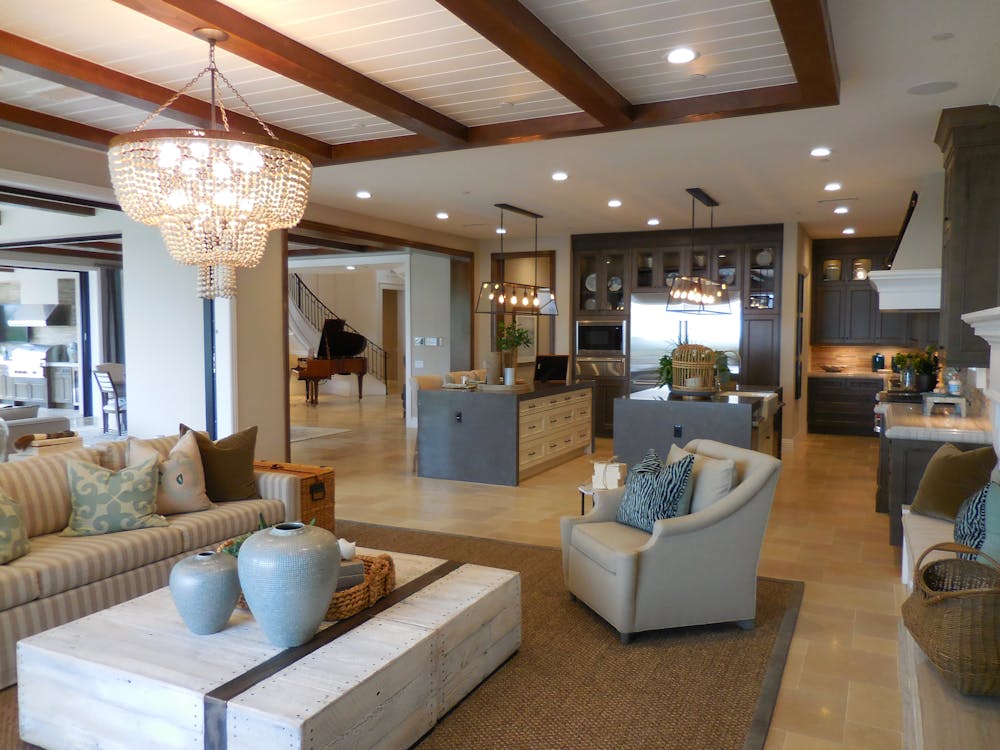Determining Your Priorities
Buying a home is one of the biggest financial decisions you’ll make. Many buyers dream of owning a luxury home, but sticking to a budget is essential. Balancing both can feel challenging, but it’s possible with smart planning. This article will help you make decisions that balance your desire for luxury with financial responsibility.
The first step is identifying what truly matters to you in a home. Make a list of must-haves versus nice-to-haves. Do you prioritize a large living space or a prime location? Maybe a modern kitchen tops your list. By clearly defining what’s essential, you’ll avoid getting swayed by features that don’t align with your core needs.
Think about how each feature will impact your day-to-day life. If you work from home, a quiet office might be more important than an extra bedroom. Defining your priorities early keeps your home search focused and efficient. It also helps ensure you don’t stretch your budget for unnecessary luxuries.
Setting a Realistic Budget
Once you’ve identified your priorities, it’s time to figure out what you can afford. A realistic budget is key to balancing luxury with financial health. Start by reviewing your income, debts, and savings. This gives you a clear idea of what you can comfortably spend on a home.
It’s helpful to get pre-approved for a mortgage. Pre-approval tells you how much a lender is willing to loan you, based on your financial profile. Keep in mind, this amount isn’t necessarily what you should spend. It’s important to leave room in your budget for other costs, like property taxes, maintenance, and unexpected expenses. Staying within a realistic budget will prevent financial stress down the road.
Smart Strategies for Balancing Luxury and Budget
Choosing the Right Location
Location is one of the most important factors in buying a home. It affects both the price and the lifestyle you’ll have. Some neighborhoods are more expensive simply because of their reputation or proximity to key areas. If you’re set on a prime location, you might need to compromise on the size or features of the home. On the other hand, exploring emerging or less-central areas can give you more space or luxury for the same price.
Look for neighborhoods that are up-and-coming. These areas might offer lower prices now, but they have the potential to appreciate in value over time. This allows you to get the most out of your investment while enjoying more luxury than you could afford in a high-demand area.
Compromising on Size and Features
When balancing luxury and budget, compromise is essential. One smart way to do this is by choosing a smaller home with higher-end features. For example, you could opt for a two-bedroom home with premium finishes rather than a three-bedroom with basic features. Focus on what adds value to your living experience rather than just square footage.
If size matters to you, think about where you’re willing to compromise. Maybe you don’t need a huge backyard but want a luxurious master suite. Or, perhaps a home with fewer bedrooms is fine if it’s in the perfect neighborhood. By making thoughtful trade-offs, you can stay within budget while still getting the luxury elements that matter most.
Maximizing Value with Renovations
Sometimes, buying a home that needs a little work can be a smart way to stretch your budget. Homes that need minor renovations often sell for less, giving you room to add luxury touches over time. Focus on areas where renovations provide the highest return on investment, like the kitchen, bathroom, or outdoor space.
When you renovate wisely, you can create the luxury you want without overspending upfront. Be sure to factor in the cost of the renovations when you make your initial home budget. Plan for updates that enhance both the comfort and value of your home.
Long-Term Considerations and Conclusion
Investing in Long-Term Value
When balancing luxury and budget, think long-term. It’s not just about finding the right home for today but also about making smart investments for the future. Focus on features that will increase your home’s resale value. High-quality finishes, energy-efficient upgrades, and durable materials are all smart choices. They may cost a bit more upfront, but they save you money in the long run and attract future buyers.
Location also plays a key role in long-term value. Homes in emerging areas may appreciate faster than those in already established neighborhoods. Look for signs of growth in a community, such as new businesses, improved infrastructure, or planned developments. These indicators can help you make a wise decision that balances luxury now with potential gains later.
Working with a Professional
Buying a home can be complicated, and finding the balance between luxury and budget isn’t easy. That’s where a real estate professional can help. A good real estate agent will guide you through the process, helping you stay within your budget while still meeting your desires. They know the market and can point you toward properties that offer the best value for your money.
Professionals also help with negotiations. They can negotiate prices, repairs, and upgrades, ensuring you get the most for your budget. If you’re considering renovations, consult a contractor or designer to get accurate estimates. This will help you understand how much you can afford and which improvements make the most sense.
